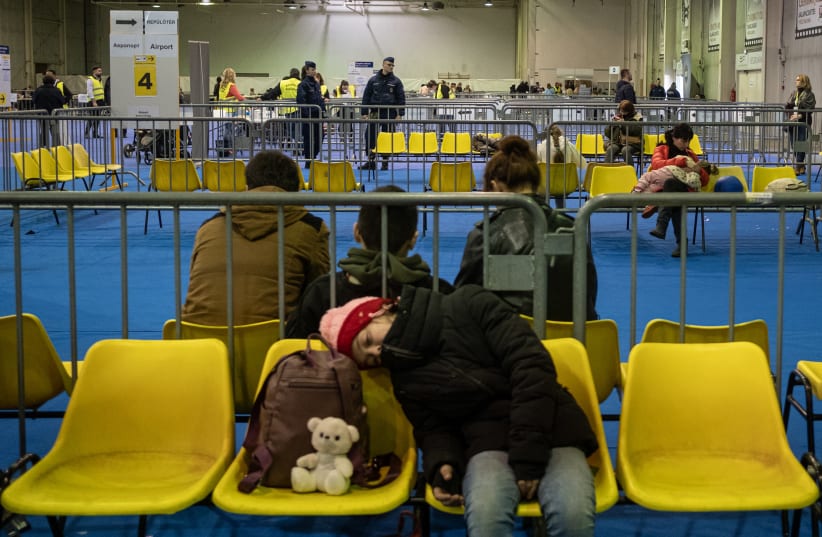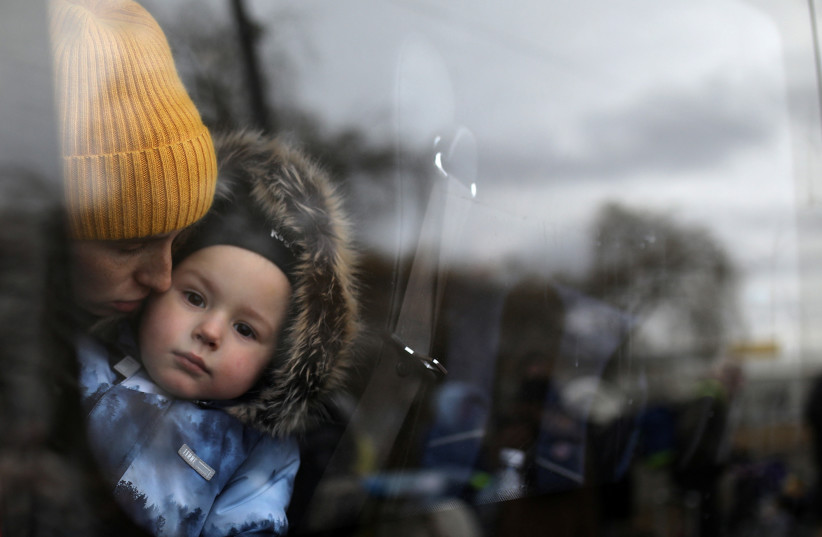There it was, on a terrace behind a Kyiv cafe. A ping pong table.
After nearly a year and a half locked away in hiding under Russian occupation, followed by a daring escape last month, Ilona Pavliuk, 16, could hardly believe it was ok to just stop and play.
"People are so nice here, they will teach you even if you're not good at it. They can even play together with you," she said. "There was no ping pong in occupation, children don't even play soccer in the stadiums. There is a stadium in Nova Kakhovka that no one plays in any more."
Her ailing father had kept Ilona and her brother Maksym, 15, hidden in the house since the Russians came to their village, Pishchane, on the south bank of the Dnipro River, at the start of their invasion last year.
"I couldn't go anywhere, because my father was worried. He said that the Russians could rape me. Or kill me: there had been such cases. He didn't even let me go to the park - it's 100 metres from our house! So I didn't go out, I stayed at home," Ilona recounted at a hostel in Kyiv, tugging absentmindedly at Valera, her fuzzy toy penguin.
Rescuing children from Russia
"I wasn't studying, I haven't finished school. I don't have any documents. So I am considered a dummy, I guess."
Last month, their father finally died of AIDS, the same illness that killed their mother a decade ago, leaving them orphans.
"I knew I had to leave, because they would have taken me to Russia, given me a Russian passport, and sent me to an orphanage," Ilona said. "One or two days after I left, they came to my house, and I wasn't there. What if I had stayed?"
President Vladimir Putin claims to have annexed Russian-occupied parts of Ukraine. Moscow says it has gathered hundreds of thousands of orphans and vulnerable children there, taking them to Russia for their safety.
Ukraine says this amounts to forced deportation to erase the Ukrainian identity of a generation of children, a crime against humanity for which Putin has already been indicted by the International Criminal Court in the Hague.
Ilona and Maksym were able to escape with the help of Save Ukraine, a charity that maintains an underground network inside occupied parts of Ukraine and Russia itself, helping children flee. It says it has rescued 200 children so far.
Children whose parents die are the most urgent cases, because the Russian-installed occupation authorities will swiftly impose legal guardianship, said Save Ukraine's founder, Mykola Kuleba.
"All children who are left without parents are moved by the Russians across their territory," he said. "They assign a guardian or place the child into an adoptive family. After that, no possible agreements can work and it is very hard to get a child back. This is why it's crucial to bring back a child as fast as possible, before this guardian appears."
Save Ukraine moved fast for Maksym and Ilona. Within days of their father's death, volunteers inside Russian-held territory helped the children flee, first to Russia itself, then to Belarus, then across the border and home at last to Ukraine. Details of the journey are kept confidential to protect activists along the route.
Ilona and Maksym are now living at the group's Kyiv hostel. Once they have Ukrainian passports sorted, they will go stay with their late father's ex-wife, now a refugee in Slovakia.
For Ilona, it only hit home that she was safe at last when she saw the border guard who let her enter Ukraine at the Belarus border. A fresh tear rolls down her cheek as she recalls how she wept on her arrival.
"When I saw the first Ukrainian soldier, I started to cry. He asked, 'Why are you crying?', and I replied, 'Because I'm in Ukraine!'"

